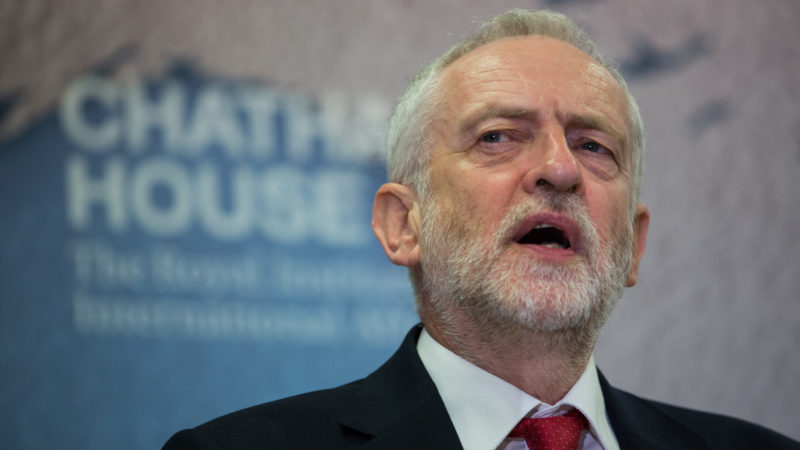Prof Prem Sikka looks at how Labour would tackle the yawning chasm between rich and poor in Britain.

For the last decade, wages for most workers have been stagnated. Meanwhile the rich have got richer.
According to the Office for National statistics, in real terms the average weekly wage in September 2019 was £502 per week compared to £525 in February 2008.
But even this statistic does not fully describe the plight of average families as it is skewed by the pay packets of premier league footballers, corporate executives, financial traders and speculators. The government data is not detailed enough, but if these well-paid groups were to be excluded the amount going to the average worker would be even lower.
Nearly a quarter of the UK workforce hovers around the national minimum wage. HMRC states that 42% of adults pay no income tax because their annual income is below the tax-free personal allowance of £12,500.
At the other end of the spectrum, the High Pay Centre has reported that in just three working days of 2019, the UK’s top bosses make more than a typical full-time worker earns in the entire year. The median full-time worker had a gross annual salary of £29,574, compared to £3.9m for the average FTSE100 CEO.
Executive pay bears no relationship to performance. At Carillion, Thomas Cook and elsewhere, despite poor performance, executives collected megabucks. The remuneration committees were stuffed with directors’ friends, often directors of other companies. They handed out bonuses and other rewards which in turn enabled them to demand even higher pay from their own companies. In some cases, the CEO collected 150 times the average wage in that company.
Party manifestos
Equitable distribution of income is a necessary condition for ending poverty and social exclusion.
The Conservative Party’s manifesto offers an increase to the national minimum wage to £10.39 per hour by 2024. Other than that it has virtually no policies for securing equitable distribution of income or controlling executive pay.
In contrast, Labour manifesto has a raft of proposals. Here’s 12:
1. Raising the national minimum wage to £10 per hour in early 2020.
2. Following success in much of Europe, Labour will require one-third of board seats on all large companies to be reserved for elected worker-directors. In much of the EU, large companies have worker-elected directors on company boards to represent employee interests and secure a fairer distribution of income. In the two-tier board system, as in Germany, a supervisory board elected by shareholders and employees deals with matters of executive pay and wages. The employee participation improves co-operation, industrial relations and helps to secure fairer distribution.
3. Labour would require greater transparency of executive remuneration contracts.
4. Remuneration committees, which frequently fix executive pay, must have representatives of employees and other stakeholders.
5. Companies frequently engage external consultants for advice on executive pay. To ensure that their report is not denied to employee and other stakeholders, Labour would require the document to be filed at Companies House and published on the company’s website.
6. Unlike the current legal requirements, Labour would require all executive remuneration packages in large companies to be the subject to an annual binding vote by stakeholders, including shareholders, employees and consumers. The range, identity and eligibility of the stakeholders would be subject to consultation. Key management personnel named in remuneration reports shall be excluded from casting any votes.
7. All large companies will be required to disclose the ratio of total CEO remuneration to median employee pay and the steps being taken to reduce it.
8. Directors will be required to explicitly state in their annual report that no employee has received pay less than the Real Living Wage.
9. Companies must set out their policies for tackling the gender and ethnicity pay gap; outline the progress made since the last report and their renewed target to reduce it.
10. To check gender and ethnicity discrimination, companies would be required to identify the number of employees earning more than £150,000 per annum in brackets of £10,000 thereafter.
11. If share options are to be offered to executives, they must also be offered to all employees on the same terms in quantity and price.
12. To check excessive executive pay, Labour would charge an Excessive Pay Levy on companies. The key idea is that inequalities cause degradation, a form of social pollution. The universally accepted principle is that polluters must be penalised so that they have incentives to modify their practices. The levy proposed by Labour would depend on the pay of each director. The rates are as follows: “2.5% for income paid above £300,000; 5% for income paid above £500,000; and 7.5% for income paid above £1 million”. This concept is very similar to that proposed in a recent Bill by US Senator Bernie Sanders and also by Republican senators.
On Thursday, we have the chance to bring the era of gross inequality to an end.
Prem Sikka is professor of accounting at the University of Sheffield and emeritus professor of accounting at the University of Essex. He is a contributing editor to LFF and tweets here.




4 Responses to “On Thursday, we have the chance to bring the era of gross inequality to an end”
Joe
Corbyn will bring a dark-age of Nazi-style antisemitism.
Where will the first of Labour’s new concentration camps be built ?
Michael Fitchett
Jo. Don’t be so fucking silly
On Thursday, we have the chance to bring the era of gross inequality to an end – LeftInsider
[…] Left Foot Forward […]
Mr Hopz
‘Joe ‘ – You’re plainly a victim of pernicious propaganda. Now wash your brain out and try again. : )